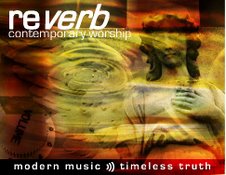
My husband reads books. I read them too, of course. But I read books. He reads BOOKS. You know, the big thick history books about English kings and Russia. He reads them over and again until the binding breaks and chunks fall out like first graders' teeth.
One of those chunks has been migrating around our house lately, moving from kitchen table to bathroom, bedroom to living room floor. Pages 363 through 452, if you care.
"Listen to this," Ray called from the other room. He began to read.
 "There was also a new stress on the workers' own sense of dignity...and they were no longer willing to be treated with any disrespect by either foremen or managers...Domestic servants marched to demand that they should be addressed with the formal 'you', as opposed to the familiar 'you', previously used to address the serfs. Yardmen demanded that their degrading title should now be changed to 'house director'. Women workers demanded equal pay to men, an end to 'degrading body searches', fully paid maternity leave and the abolition of child labour. As the workers saw it, these were basic issues of morality...Many workers spoke of founding a 'new moral life', based on law and individual rights, in which there would be no more drunkenness, swearing, gambling or wife-beating."
"There was also a new stress on the workers' own sense of dignity...and they were no longer willing to be treated with any disrespect by either foremen or managers...Domestic servants marched to demand that they should be addressed with the formal 'you', as opposed to the familiar 'you', previously used to address the serfs. Yardmen demanded that their degrading title should now be changed to 'house director'. Women workers demanded equal pay to men, an end to 'degrading body searches', fully paid maternity leave and the abolition of child labour. As the workers saw it, these were basic issues of morality...Many workers spoke of founding a 'new moral life', based on law and individual rights, in which there would be no more drunkenness, swearing, gambling or wife-beating.""Do you get it?" He asked. "I know exactly what you're thinking. I got it in about the second sentence." (Married people are like that sometimes) "Sounds a lot like the Kingdom, huh?"
I find it interesting that God's kingdom rises up in unlikely places at times. That was Russia in 1917 - around the time Americans were fighting for suffrage and prohibition. About the time that our denomination was gaining legs. Here's my question. Does God's kingdom rely on religious people to cause it to happen or could it possibly move at Divine impulse through means the religious do not sanction or call their own?
* the painting is titled "Revolution" by Marc Chagall


No comments:
Post a Comment